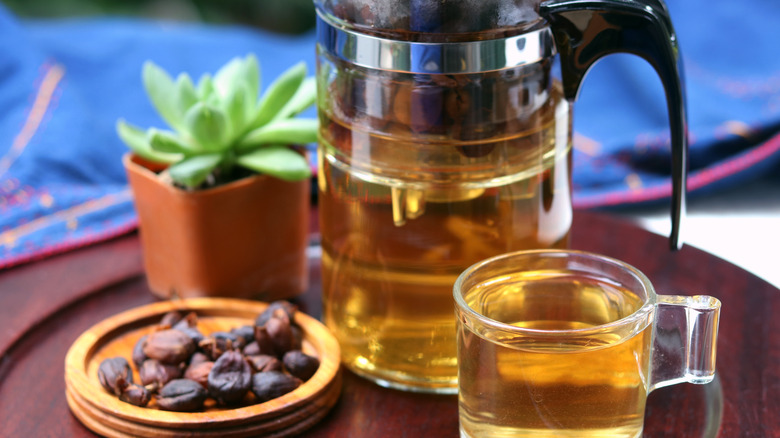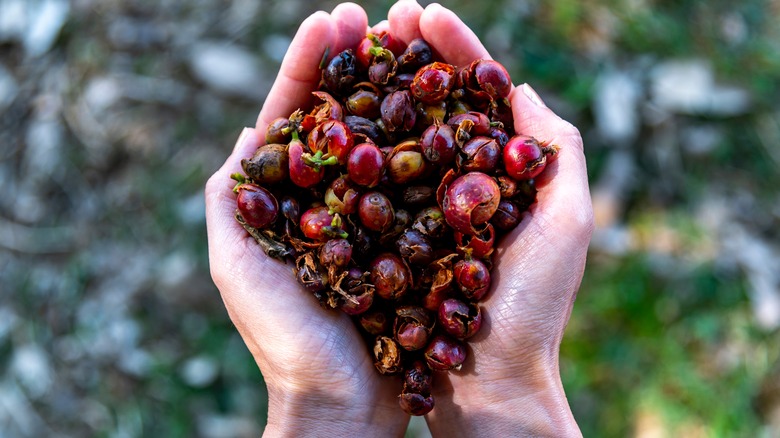What Is Cascara, And How Does It Relate To Coffee?
It's hard to decide which of this product's outstanding attributes to herald first. It's considered an upcycled superfood, an impressive variety of products can be made from it, and it's a delicious, nutritious beverage, hot or cold. But, if you are unfamiliar with Cascara, let's start with what it is. Cascara (pronounced cáscara) is a Spanish word that means peel or husk. Though we think of coffee as a bean, it's actually a fruit, and the "bean" — which can be roasted in a multitude of ways – is the seed of the fruit called a coffee cherry. The skin and flesh removed from the seed (bean) are cascara. Also known as coffee cherry tea, cascara is pretty new to the U.S. coffee house menu. NPR reported on cascara tea showing up in cafes in 2015, and Starbucks started foaming it for their cascara latte in 2017 (per Starbucks).
But throughout the world, cascara from the coffee cherry has been utilized for many purposes, likely as long as coffee has been processed. Indeed, a traditional drink from Yemen, called qishr, is a mix of cascara, ginger, and sugar and acts as a slightly caffeinated tisane. Qishr is integral to Yemeni culture as part of the Muslim dervish rituals and is often offered to welcome visitors (per Food Atlas).
Benefits of Cascara
Cascara is frequently promoted as a sustainable product, and indeed it can be a part of a zero waste system. Still, its status as sustainable is only as good as the coffee grower's farming techniques. Fortunately, it seems companies pursuing the use of cascara are also promoting and supporting small farmers and sustainable practices. For example, Nomad Trading Co., a cascara-based energy drink producer's mission statement includes, the value of using cascara that is otherwise wasted and creating additional revenue streams for organic coffee growers.
Cascara is highly nutritious, Coffee Cherry Company tells us it has more protein per gram than kale. It also contains polyphenols, the anti-inflammatory compound found in olive oil, which can help protect the body from many diseases, like cancer and diabetes (per Very Well Fit). Olam coffee, in partnership with Ofi – a global sustainable foods company — offers a remarkable variety of casara-based products beyond beverages. Their line includes concentrates for jams, desserts, flour, and an antioxidant for use in cosmetics. Their line is a significant upcycle from Cascara's more traditional agricultural uses as composted material and animal food supplements. An Analysis of Innovation on the Utilization of Cascara by Coffee Farmers supports this idea. We intend to keep an eye out for nutrition bars, power drinks, (per Trend Hunters) and cosmetics infused with cascara to support the trend in repurposed organic waste.

